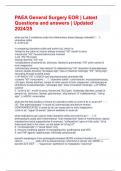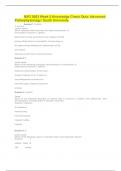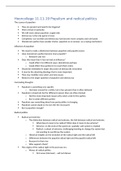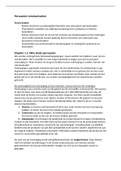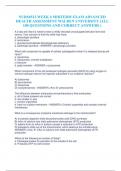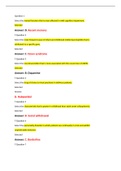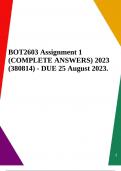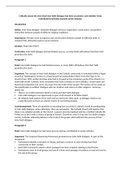Ways in which the Glorious Revolution LIMITED Ways in which the Glorious Revolution DID NOT
the powers of the Crown: limit the powers of the Crown:
The initial constitutional settlement (Declaration The initial constitutional settlement (Declaration
of Rights 1689, Mutiny Act 1689, Bill of Rights of Rights 1689, Mutiny Act 1689, Bill of Rights
1689): 1689):
● The suspending power was declared illegal ● The Declaration of Rights had no explicit
and the dispensing power restricted. demand that William and Mary abide by it,
● The raising or keeping of a standing army in they were not forced to swear to it, it was
times of peace was only allowed with the simply read out to them.
consent of parliament. ● The Declaration of Rights only referred to
● Parliament could revoke the right to hold abuses of the royal prerogatives, but did not
courts martial simply by failing to pass a new question the prerogatives themselves.
mutiny act, which had to be reinstated ● The Bill of Rights was very vague. For
annually, so William relied on parliament to example, it said that it would hold free
be held every year. elections without ever specifying what free
● Although there was no explicit demand meant.
William and Mary abide by the Declaration of ● The Bill of Rights also made no provisions
Rights, by it being read out to them at their for ensuring that elections were free, it
coronation, there was an implicit expectation contained no mechanism for its own
that they would do it anyways. enforcement.
● The Bill of Rights wasn’t a binding contract, it
could easily be revoked, so its legal status
was uncertain.
● William still had his own Dutch army and was
still able to choose his own commanding
officers. He was also free to choose his own
ministers and advisers and he retained the
sole right to decide on issues of war, peace,
and foreign policy.
The initial financial settlement 1689-90 (the The religious settlement (Toleration Act 1689):
Commision of Public Accounts 1690) and the Civil
List Act 1698: ● William remained head of the Anglican
● Parliament decided to only award William Church and could use his position to
£1.2 million a year, a sum that was influence policy.
insufficient even in peacetime, in order to ● He appointed bishops.
make William reliant on parliament for funds ● He put pressure on parliament to put aside
for his war with France (the Nine Years’ the Comprehension Bill, intervening through
War). It was decided that half would go to the religious settlement of 1689 and passing
the war and the other half would go to the the Toleration Act that allowed Protestant
maintenance of civil matters. William was dissenters to worship freely.
therefore forced into borrowing. ● He dissolved Convocation until 1701 to end
● William also agreed to the establishment of religious wrangling over the religious
the Commission of Public Accounts, which settlement (Convocation was a meeting
allowed for greater scrutiny of government involving members of the clergy).
spending. Parliament would also frequently
summon officials to justify their spending
actions which undermined William and his
ministers. William only ever agreed to these
because he needed money for his war with
France.
● The Civil List Act of 1698 was passed a year
after the Nine Years’ War ended, showing
that William was fully dependent on
parliament now, not just because he needed
funds for the war effort. This act deemed that
parliament would give William money but in
return they would decide how money for
military use was officially spent.
The financial revolution 1693-4 (the Million Act, The initial financial settlement 1689-90 (the
the Million Lottery Act, the Tonnage Act): Commision of Public Accounts 1690) and the Civil
● The Million Act was intended to raise a loan List Act 1698 and the financial revolution 1693-4

